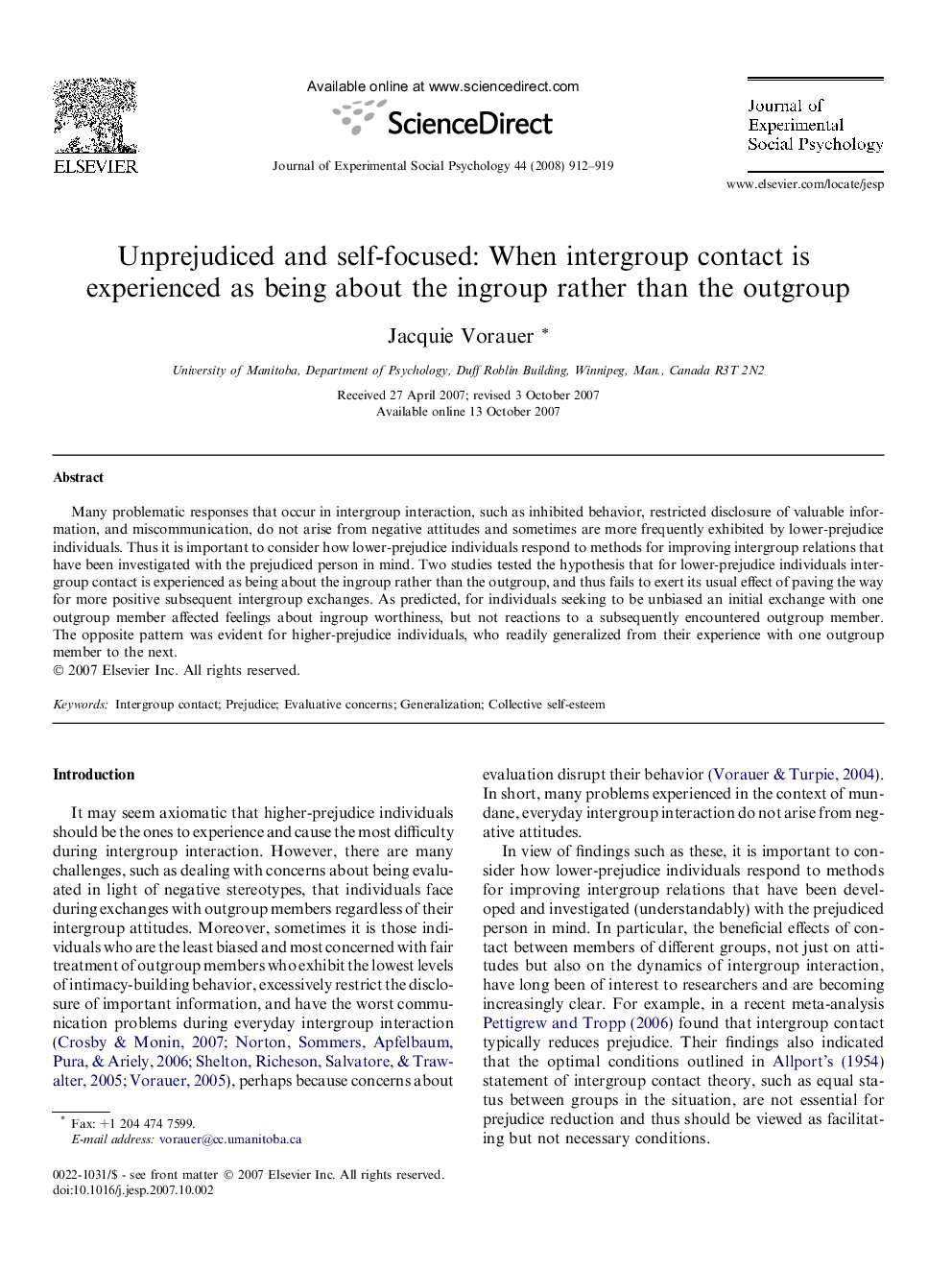| Article ID | Journal | Published Year | Pages | File Type |
|---|---|---|---|---|
| 948147 | Journal of Experimental Social Psychology | 2008 | 8 Pages |
Many problematic responses that occur in intergroup interaction, such as inhibited behavior, restricted disclosure of valuable information, and miscommunication, do not arise from negative attitudes and sometimes are more frequently exhibited by lower-prejudice individuals. Thus it is important to consider how lower-prejudice individuals respond to methods for improving intergroup relations that have been investigated with the prejudiced person in mind. Two studies tested the hypothesis that for lower-prejudice individuals intergroup contact is experienced as being about the ingroup rather than the outgroup, and thus fails to exert its usual effect of paving the way for more positive subsequent intergroup exchanges. As predicted, for individuals seeking to be unbiased an initial exchange with one outgroup member affected feelings about ingroup worthiness, but not reactions to a subsequently encountered outgroup member. The opposite pattern was evident for higher-prejudice individuals, who readily generalized from their experience with one outgroup member to the next.
